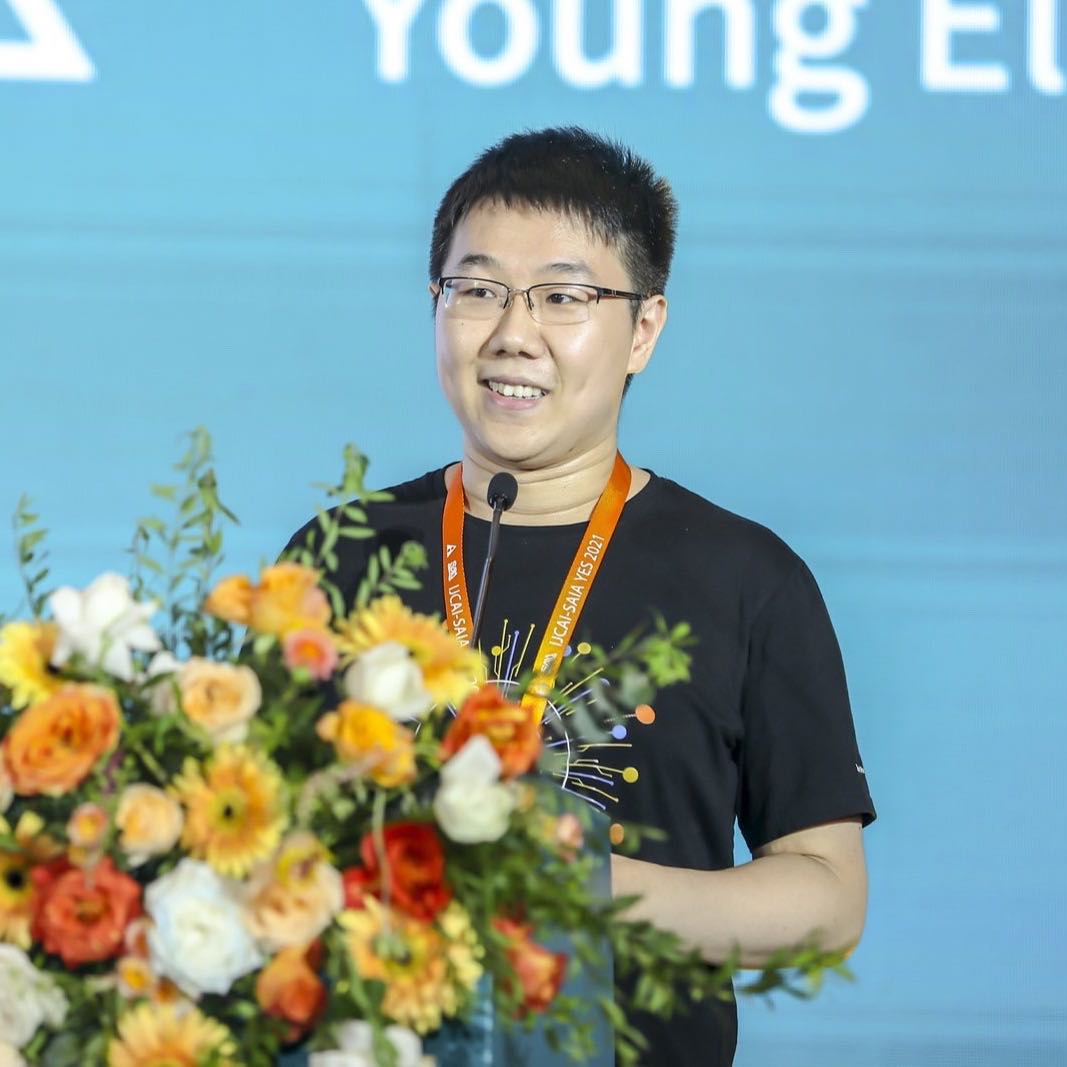| 09:00 AM |
Opening |
| 09:05 PM |
Session 1 (Retrieval & Conversational Analysis): |
|
09:05 AM -
09:40 AM
Invited talk by Dan Roth: On Retrieving & Reasoning LLMs: Myths, Merits, and How to Move Forward
[Abstract]
The rapid progress made over the last few years in generating linguistically coherent natural language has blurred, in the mind of many, the difference between natural language generation, understanding, knowledge retrieval and use, and the ability to reason with respect to the world. Nevertheless, reliably and consistently supporting high-level decisions that depend on natural language understanding and heterogenous information retrieval is still difficult, mostly, but not only, since most of these tasks are computationally more complex than language models can support. I will discuss some of the challenges underlying reasoning and information access and argue that we should exploit what LLMs do well while delegating responsibility to special purpose models and solvers for decision making. I will present some of our work in this space, focusing on supporting reasoning and information access.
[Speaker Bio]
Dan Roth is the Eduardo D. Glandt Distinguished Professor at the University of Pennsylvania and Chief AI Scientist at Oracle. Until June 2024 Dan was a VP/Distinguished Scientist at AWS AI where he led the scientific effort behind Amazon's first-generation GenAI products, including Titan Models, Amazon Q, and Amazon Bedrock. Dan is a Fellow of the AAAS, ACM, AAAI, and ACL, and a recipient of the IJCAI John McCarthy Award "for major conceptual and theoretical advances in the modeling of natural language understanding, machine learning, and reasoning." He has published broadly in natural language processing, machine learning, knowledge representation and reasoning, and learning theory, was the Editor-in-Chief of the Journal of Artificial Intelligence Research (JAIR) and has served as a Program Chair and Conference Chair for the major conferences in his research areas. Roth has been involved in several ML/NLP/GenAI startups in domains that range from legal and compliance to health care. Dan received his B.A Summa cum laude in Mathematics from the Technion, Israel and his Ph.D. in Computer Science from Harvard University in 1995.
|
|
09:40 AM -
09:55 AM
Can we Retrieve Everything All at Once? ARM: An Alignment-Oriented LLM-based Retrieval Method
Peter Baile Chen, Yi Zhang, Mike Cafarella, Dan Roth
|
|
09:55 AM-
10:10 AM
Something's Fishy in the Data Lake: A Critical Re-evaluation of Table Union Search Benchmarks
Allaa Boutaleb, Bernd Amann, Hubert Naacke, Rafael Angarita
|
|
10:10 AM-
10:25 AM
In-context learning of Soft Nearest Neighbor Classifiers for Intelligible Tabular Machine Learning
Mykhailo Koshil, Matthias Feurer, Katharina Eggensperger
|
| 10:25 AM |
Coffee Break
|
| 11:00 AM |
Session 2 (Agentic Data Science & Text-to-SQL): |
| |
11:00 AM-
11:35 AM
Invited Talk by Tao Yu (HKU): Advancing Data Science with AI Agents
[Abstract]
TBC
[Speaker Bio]
Tao Yu is an Assistant Professor of Computer Science at The University of Hong Kong and a director of the XLANG Lab (as part of the HKU NLP Group). He spent one year in the UW NLP Group working with Noah Smith, Luke Zettlemoyer, and Mari Ostendorf. He completed his Ph.D. in Computer Science from Yale University, advised by Dragomir Radev and master's at Columbia University advised by Owen Rambow and Kathleen McKeown.
Tao has received the Google and Amazon faculty research awards (Google Research Scholar Award 2023, Amazon Research Award 2022). His main research interest is in Natural Language Processing. His research aims to develop embodied AI agents that empower users to use language to interact with digital and physical environments to carry out real-world tasks. Such systems need to ground language and perception into code and actions executable in the corresponding embodied environment, helping people perform data science, control computers, and collaborate with robots.
|
|
11:35 AM -
11:50 AM
R^3: This is My SQL, Are You With Me?
Hanchen Xia, Feng Jiang, Naihao Deng, Cunxiang Wang, Guojiang Zhao, Rada Mihalcea, Yue Zhang
|
|
11:50 AM-
12:30 PM
Poster session 1 (unfold)
Can we Retrieve Everything All at Once? ARM: An Alignment-Oriented LLM-based Retrieval Method
Something's Fishy in the Data Lake: A Critical Re-evaluation of Table Union Search Benchmarks
In-context learning of Soft Nearest Neighbor Classifiers for Intelligible Tabular Machine Learning
R^3: This is My SQL, Are You With Me?
Theme-Explanation Structure for Table Summarization using Large Language Models: A Case Study on Korean Tabular Data
SQLong: Enhanced NL2SQL for Longer Contexts with LLMs
RITT: A Retrieval-Assisted Framework with Image and Text Table Representations for Table Question Answering
Ask Me Like I'm Human: LLM-based Evaluation with For-Human Instructions Correlates Better with Human Evaluations than Human Judges
Perspective: Leveraging Domain Knowledge for Tabular Machine Learning in the Medical Domain
Embeddings for Numerical Features Using tanh Activation
Retrieval-Augmented Forecasting with Tabular Time Series Data
Improving Table Retrieval with Question Generation from Partial Tables
|
| 12:30 |
Lunch Break
|
| 1:30 PM |
Session 3 (Text-to-SQL & Domain Challenges) |
|
1:30 PM -
2:05 PM
Invited Talk by Edward Choi (KAIST): Text-to-SQL on Electronic Health Records: From simple QA to multi-modal and interactive QA
[Abstract]
Electronic health records (EHR) contain a vast amount of medical records that can be leveraged for improving personal care as well as the operational aspect of medical institutions. Thanks to the introduction of LLMs and its remarkable advancement in recent years, we can now implement agents/services that can have complex interactions with the EHR via text-to-SQL, empowering the users to make more informed decisions than before. This, however, means the evaluation of such agents must also be complex and interactive, even multi-modal especially in the domain of medicine. In this talk, I will first briefly describe my view on AI evaluation, then introduce the basics of text-to-SQL for EHR, expand with multi-modal text-to-SQL, then conclude with interactive text-to-SQL for EHR.
[Speaker Bio]
Edward Choi is an associate professor of Kim Jaechul Graduate School of AI, KAIST. He received his PhD in Georgia Tech, under the supervision of Prof. Jimeng Sun, focusing on interpretable deep learning methods for electronic health records. Prior to joining KAIST, he worked on developing and analyzing medical prediction models at Google. His current research interests include question answering for multi-modal medical records, domain-specific reasoning LLMs, and user modeling with LLMs.
|
|
02:05 PM -
02:20 PM
Resolution-Alignment-Completion of Tabular Electronic Health Records via Meta-Path Generative Sampling
S Mehryar
|
|
02:20 PM -
02:35 PM
Sparks of Tabular Reasoning via Text2SQL Reinforcement Learning
Josefa Lia Stoisser, Marc Boubnovski Martell, Julien Fauqueur
|
|
02:35 PM -
02:50 PM
BEAVER: An Enterprise Benchmark for Text-to-SQL
Peter Baile Chen, Fabian Wenz, Yi Zhang, Devin Yang, Justin Choi, Nesime Tatbul, Mike Cafarella, Çağatay Demiralp, Michael Stonebraker
|
|
02:50 PM -
03:30 PM
Poster: Session 2 (unfold)
Resolution-Alignment-Completion of Tabular Electronic Health Records via Meta-Path Generative Sampling
Sparks of Tabular Reasoning via Text2SQL Reinforcement Learning
BEAVER: An Enterprise Benchmark for Text-to-SQL
Table Understanding and Multimodal (LLMs): A Cross-Domain Case Study on Scientific vs. Non-Scientific Data
How Well Do LLMs Reason over Tabular Data, Really?
iTBLS: A Dataset of Interactive Conversations Over Tabular Information
Generating Synthetic Relational Tabular Data via Structural Causal Models
Tables as Thought: Exploring Structured Thoughts in LLM Reasoning
Rethinking Table Instruction Tuning
LLM-Mixer: Multiscale Mixing in LLMs for Time Series Forecasting
TableKV: KV Cache Compression for In-Context Table Processing
OrQA – Open Data Retrieval for Question Answering Dataset Generation
|
| 03:30 PM |
Coffee Break
|
| 04:00 PM |
Session 4 (Tabular and Multimodal Reasoning): |
|
04:00 PM -
04:35 PM
Invited Talk by Julian Eisenschlos: How generation can drive understanding in visually situated language
[Abstract]
Large amounts of content both online and offline relies on structure to organize and communicate information more effectively. While natural image and language understanding and generation has been studied extensively, visually situated language such as tables, charts, plots, and infographics, continues to be a challenge for models large and small. In this talk we will show how teaching models to generate visually situated language can improve downstream reading and reasoning on this data modality for tasks such as question answering, entailment and summarization through multi-step reasoning and tool use.
[Speaker Bio]
Julian Eisenschlos is a Staff Research Scientist at Google DeepMind tackling problems in visual language understanding and generation. He is a member of the Gemini core team and was previously co-founder of Botmaker and worked on ML at Meta and ASAPP.
|
|
04:35 PM -
04:50 PM
Table Understanding and Multimodal (LLMs): A Cross-Domain Case Study on Scientific vs. Non-Scientific Data
Ekaterina Borisova, Fabio Barth, Nils Feldhus, Raia Abu Ahmad, Malte Ostendorff, Pedro Ortiz Suarez, Georg Rehm, Sebastian Möller
|
|
04:50 PM -
05:05 PM
How Well Do LLMs Reason over Tabular Data, Really?
Cornelius Wolff, Madelon Hulsebos
|
|
05:05 PM -
05:20 PM
iTBLS: A Dataset of Interactive Conversations Over Tabular Information
Anirudh Sundar, Christopher Gordon Richardson, Larry Heck, Adar Avsian
|
| 05:20 PM |
Closing & Awards |









